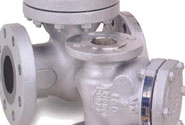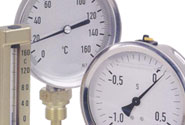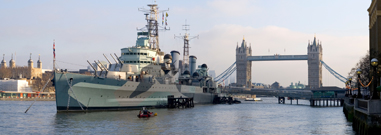- Tel: +44 (0) 208 305 0792
- FAX: +44 (0) 208 858 0101
- info@stoneleigh-eng.com

Gate, Globe, Pressure
& Check Valves

Choose from Forged Steel, Cast or Wafer Check
These types of Valve come in a wide range of Materials, Pressure and Temperature ratings.
Instruments, Gauges,
Gaskets & Hoses

Vast array of equipment is available to offer
Ranging from Pressure, Temperature, Vacuum, Refrigeration, Sight and Level made to order.
Butterfly & Ball Valves

We can offer a wide range of Valves
1,2 and 3 Piece, Trunion Mounted, Fire Safe, Multiport and NACE Ball Valves.
Valve Refurbishment, Overhaul,
Installation & Maintenance
Complete valve repair & refurbishment service at our Charlton Workshops
We carry out repairs to the whole range of valves currently in use from 1/2" to 36".
Global Services

We understand the international market environment.
We have proven expertise and skills in this field build up over many years. We assist our clients in procurement, supply, shipping and payment procedures.
NATO list

Download our weekly NATO List
NATO Numbers are the unique thumb print for every item purchased by the M.O.D. We update our list in response to the requests to supply of new items.
Types of Valves
Please click for general information on basic valve types or specific valve types
Types
Valves are quite diverse and may be classified into a number of basic types. Valves may also be classified by how they are actuated:
- Hydraulic
- Solenoid
- Motor
- Pneumatic
- Manual
Basic types Valves can be categorized into the following:
- Duplex ball, for on/off control without pressure drop, and ideal for quick shut-off since a 90deg turn offers complete shut-off angle, compared to multiple turns required on most manual valves.
- Butterfly, for flow regulation in large pipe diameters.
- Choke, a valve that raises or lowers a solid cylinder which is placed around or inside another cylinder which has holes or slots. Used for high pressure drops found in oil and gas wellheads.
- Check or non-return, allows the fluid to pass in one direction only.
- Hastelloy check valve Diaphragm valves, some are sanitary predominantly used in the pharmaceutical and foodstuff industry.
- Ceramic Disc, used mainly in high duty cycle applications or on abrasive fluids. Ceramic disc can also provide Class IV seat leakage
- Gate, mainly for on/off control, with low pressure drop.
- Stainless steel Globe, good for regulating flow. Knife valve, for slurries or powders on/off control. Needle valve for accurate flow control.
- Piston, for regulating fluids that carry solids in suspension. Pinch valve, for slurry flow regulation.
- Plug, slim valve for on/off control but with some pressure drop.
- Pressure Valves, a safety device that relieves overpressure in a vessel or piping.
- Spool, for hydraulic control Thermal expansion valve, used in refrigeration and air conditioning systems.
- Poppet, commonly used in piston engines to regulate the fuel mixture intake and exhaust
- 4-stroke cycle engine valves: an application of piston valve
- Aspin: a cone-shaped metal part fitted to the cylinder head of an engine
- Ball cock: often used as a water level controller (cistern)
- Bibcock: provides a connection to a flexible hosepipe
- Blast: prevents rapid overpressures in a fallout shelter or a bunker Cock: colloquial term for a small valve or a stopcock
- Demand: on a diving regulator
- Double beat or Double check valves
- Duckbill or Flipper valves
- Flow control: an application which maintains a constant flow rate through the valve
- Heimlich: a specific one-way valve used on the end of chest drain tubes to treat a pneumothorax
- Foot: a check valve on the foot of a suction line to prevent backflow
- Four-way: was used to control the flow of steam to the cylinder of early double-acting steam engines
- Freeze seal/Freeze plug: in which freezing and melting the fluid creates and removes a plug of frozen material acting as the valve
- Gas pressure regulator regulates the flow and pressure of a gas Heart valve: regulates blood flow through the heart in many organisms
- Leaf: one-way valves consisting of a diagonal obstruction with an opening covered by a hinged flap
- Pilot: regulate flow or pressure to other valves
- Poppet and sleeve valves: commonly used in piston engines to regulate the fuel mixture intake and exhaust
- Pressure regulator or pressure reducing valve (PRV): reduces pressure to a preset level downstream of the valve
- Pressure sustaining valves, or back-pressure regulator: maintains pressure at a preset level upstream of the valve
- Presta and Schrader valves are used to hold the air in bicycle tires
- Reed: consists of two or more flexible materials pressed together along much of their length, but with the influx area open to allow one-way flow, much like a heart valve
- Regulator: used in SCUBA diving equipment and in gas cooking equipment to reduce the high pressure gas supply to a lower working pressure
- Rocker, Rotary and piston valves: parts of brass instruments used to change their pitch
- Rupture disc: a one time use replaceable valve for rapid pressure relief, used to protect piping systems from excessive pressure or vacuum; more reliable than a safety valve
- Saddle valves: where allowed, is used to tap a pipe for a low-flow need
- Safety or relief valves: operates automatically at a set differential pressure to correct a potentially dangerous situation, typically over-pressure
- Schrader valves: used to hold the air inside automobile tires Solenoid valve: an electrically controlled hydraulic or pneumatic valve
- Stopcock: restricts or isolates flow through a pipe Swirl valve: A specially designed
- Joule-Thompson pressure reduction/expansion valve imparting a centrifugal force upon the discharge stream for improving gas-liquid phase separation
- Tap (British English), faucet (American English): the common name for a valve used in homes to regulate water flow Thermal expansion valve, used in air conditioning and refrigeration systems.
- Thermostatic Mixing Valves, Thermostatic Radiator Valve Trap primer: sometimes include other types of valves, or are valves themselves Vacuum breaker valve: prevents the back-siphonage of contaminated water into pressurized drinkable water supplies
The valve is a unit that regulates the flow of a fluid (gases, liquids, fluidized solids, or slurries) by opening, closing, or partially obstructing various passageways. Valves are technically pipe fittings, but sometimes referred to in a different category. In an open valve, fluid flows in a direction from higher pressure to lower pressure.
Valves are used in a variety of contexts, including industrial, government, military, commercial, residential, and transport.
The industries in which the majority of valves are used are oil and gas, power generation, mining, water reticulation, paper mills, refinery, sewerage and chemical manufacturing.
Common valves are plumbing valves, for example taps for hot and cold tap water are the most visable types of valves. Other valves experienced on a daily basis include gas control valves on cookers, small valves fitted to washing machines and dishwashers, and safety devices fitted to hot water systems.
Valves may be operated manually, by a hand wheel, lever or pedal. Valves may also be automatic, driven by changes in pressure, temperature, or flow. These changes may act upon a diaphragm or a piston which in turn activates the valve, examples of this type of valve found commonly are safety valves fitted to hot water systems or boilers.
More complex control type systems using valves requiring automatic control based on an external input (i.e., regulating flow through a pipe to a changing set point) require an actuator. An actuator will stroke the valve depending on its input and set-up, allowing the valve to be positioned accurately, and allowing control over a variety of requirements.


